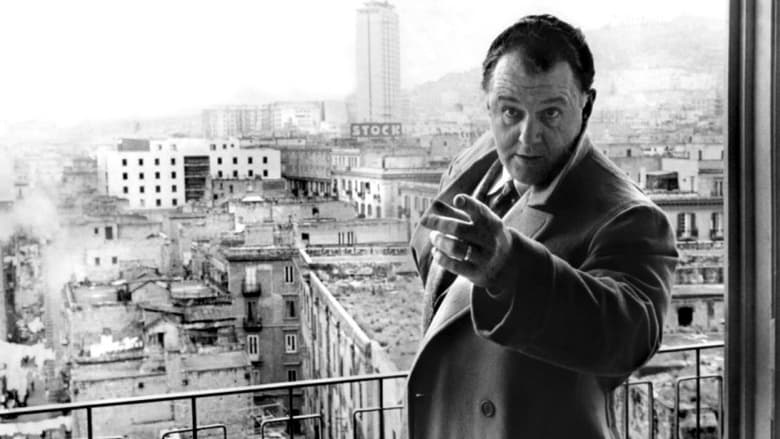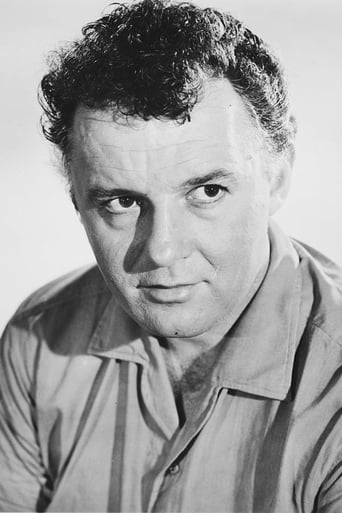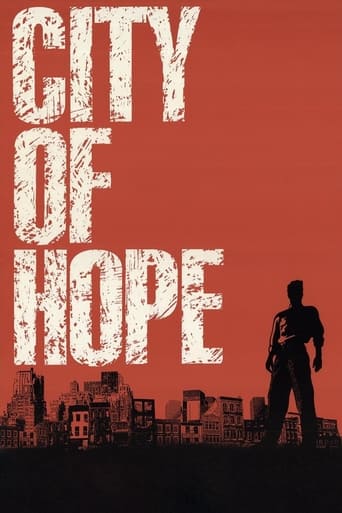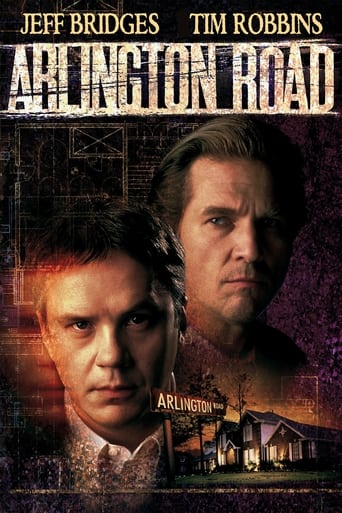Hands over the City (1964)
Prior to a city council election, the collapse of a building leaves a land developer and his political backers defending themselves against a scandal.
Watch Trailer
Cast


Similar titles
Reviews
The first quarter of an hour of this film is completely mesmerising as we see a series of overhead shots of the different sides to the city of Naples and then the incredibly shot building collapse. At the same time we are made aware of the corruption in the building industry and how most of the money ends up in the same place all the time. Rod Steiger plays the main villain of the peace and it is an extraordinary performance. For considerable periods we simply see him prancing about his office, clearly struggling to think of the best way out of the immediate problem, the best way to get more political power and the best way for him and his son to stay on top. he expresses so much, and in such an Italian way, the pressures his constant messing with peoples' lives brings him. There are many fine sequences as the various political factions gang up and then get bought off as the big man inevitably gets his way. I preferred the slightly more fictionalised and later Three Brothers and Illustrious Corpses but this near documentary impression of Italy's boom building phase is very impressive and involving.
Francesco Rosi's movie "Le mani sulla città" ("Hands Over the City" in English) is about a developer (Rod Steiger) whose building collapses, leading to political fallout. While it looks like a simple story of corruption in Naples, it could be anywhere on earth. Any time that someone skimps on something, the people are going to suffer. People who insist that there should be no government involvement in anything don't realize (or refuse to realize) that they might be the ones suffering.If the movie has any downside, it's that we don't get to hear much from the people who suffered from the collapsed building. After the collapse, there are some scenes of protests, but most of the movie looks at the inner workings of the city government and how accusations fly in all directions.Rod Steiger (speaking perfect Italian) is particularly interesting as the developer-turned-city councilman. The guy looks like he could be any working stiff, but he has all sorts of Machiavellian plans. The last scene shows the various buildings throughout Naples, forcing the viewer to wonder if the whole thing will soon start over. All in all, it's a really good movie.PS: One scene inadvertently portends political crises to come in Italy. Towards the end of the movie, a character walks by a poster of Aldo Moro. Moro later got kidnapped and executed by the Red Brigades.
This Golden Lion-winning political drama, helmed by ambitious journalistic Italian filmmaker Francesco Rosi, makes a performance of a pursuit, a miscarried pursuit, but informative nonetheless for the inside scoop it wagers before us. The investigators are members of the Naples City Council, who are grindingly provoked by the collapse of a building in a congested blue-collar back street. Did the building wreck, with some tragic results, due to hazardous construction at a neighboring site? Most of the council is willing to draw the line of their inquiry at this particular question, having already settled that the answer is no.Initially, the sole proponent for further examination is convinced that the root cause is one of everyday profiteering, as personified by Rod Steiger's council member and real estate developer named Nottola. His right-wing party commands the government, which governs the city's construction and planning offices, which permit Nottola charge of whatever development he favors. The gluttonous profits come full circle to the right-wing party. With an election coming up, the noble sole proponent is fixed on fracturing this cycle by exposing it, yet in doing so he is exposed to infuriating bureaucracy. In reality, he is played not by a professional actor but a member of the city council and secretary of the chamber of commerce.Fermariello's good guy appears more emotionally decipherable than Steiger's Nottola, who in spite of being the axial character is cold and unapproachable in most scenes. Nottola disappears for extensive segments of the movie. His son, the engineer at fault for the building disaster, evaporates for the entire film after one small and obscure appearance. The film is quite reminiscent of the much more recent film There Will Be Blood by Paul Thomas Anderson, and with a very similarly remote main character. As for Nottola's feelings for his son, they never surface at any point. At the moment when Nottola faces the urgency to choose between his son or his business concerns, Rosi denies even a suggestion of his internal life. While Nottola remains silent and ponderous, Rosi's camera ranges his nondescript office and juxtaposes him with the window's view of the darkened city, for almost three full minutes, as the disonant musical score awakes in a sother of brass, shapelessly building like a migraine before it's shattered by a menacing jazz wallop.Pay close attention to the first few scenes of this eager sociological parable. While this succession economically summarizes the era's Neapolitan chain of graft, there are lush leaps in framing and scope like when we see Nottola's hands in close-up against the outlying background, high-reaching overhead purviews first of an architectural facsimile and then of the real city, abrupt cuts that jar you in and out of runaway and overlapping dialogues, and curt pauses during which you read the faces of an "industriopolitical" (my word) mass. This sequence of jarrings delves into how Rosi gets away with his conversational portrayal, half council-chamber public speaking and the other half clandestine political scheming. While the dialogue by itself would be a courtroom-like chore, Rosi's stylistic visual appeal keeps one enthralled.So the circle of the film closes, and the camera cranks back through the city council chamber, and then you see the same high-flying aerial shots as at the beginning. And yet, although Rosi appears to be suggesting a sort of sighing and giving up, a point of view not so irrational when one sees how far beyond Naples this perpetuated cycle of underhanded government puppeteering remains several decades later, the stylized realism of this, what I call an everyday disaster movie, leaves you feeling resilient and energized.
This film seems an effort to engage the life and destiny of a city at the level of the political and social, using journalistic techniques but always with an awareness that these are also interpretations - something that most USian journalism tends to overlook. What will mostly bother people is that it lacks the usual human center - the man/woman/family to which the bad things happen which will cause us to care that they are happening. This is hardly an oversight; it is a choice, and one that deserves to be considered openly without the rush to judgment that otherwise occurs when confronted with the unfamiliar. The human center of the film is there, but always at the edges, implied. We barely glimpse the victims of the collapsed building, but their fate informs every frame. And the superb "portrayals" by actual members of the city council (the De Vita character, e.g.) give us not actors, but people enmeshed in the actuality. This film deserves wider awareness.

















